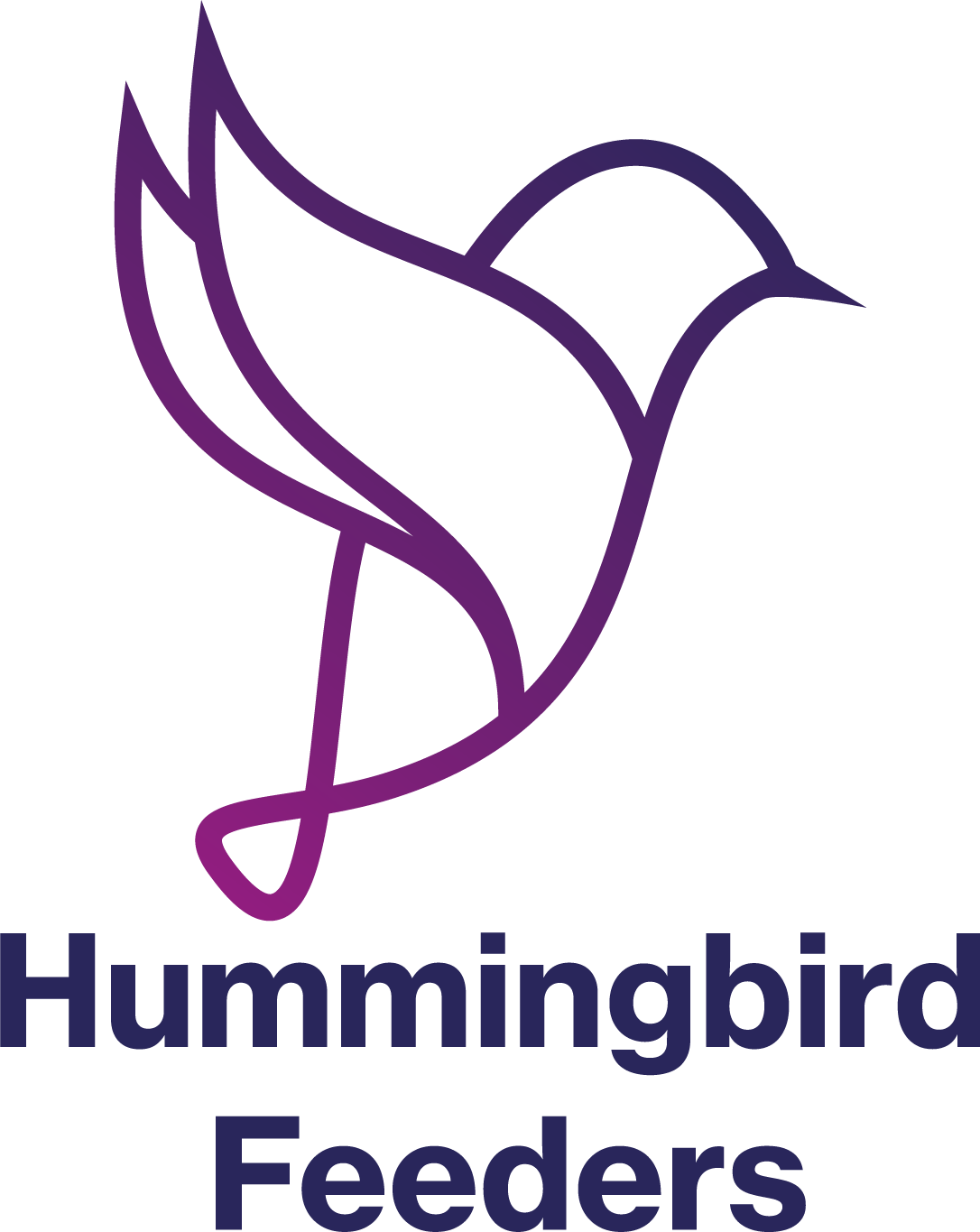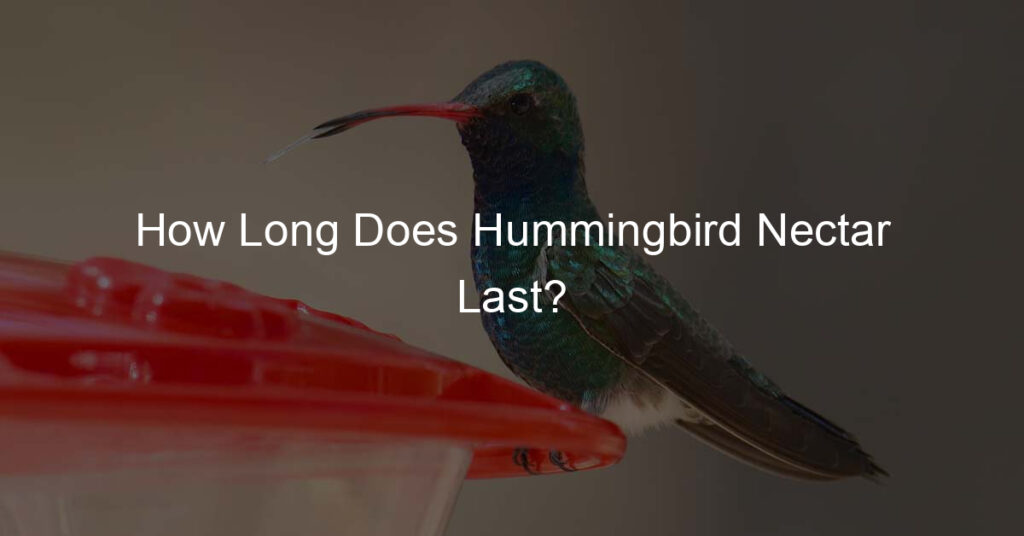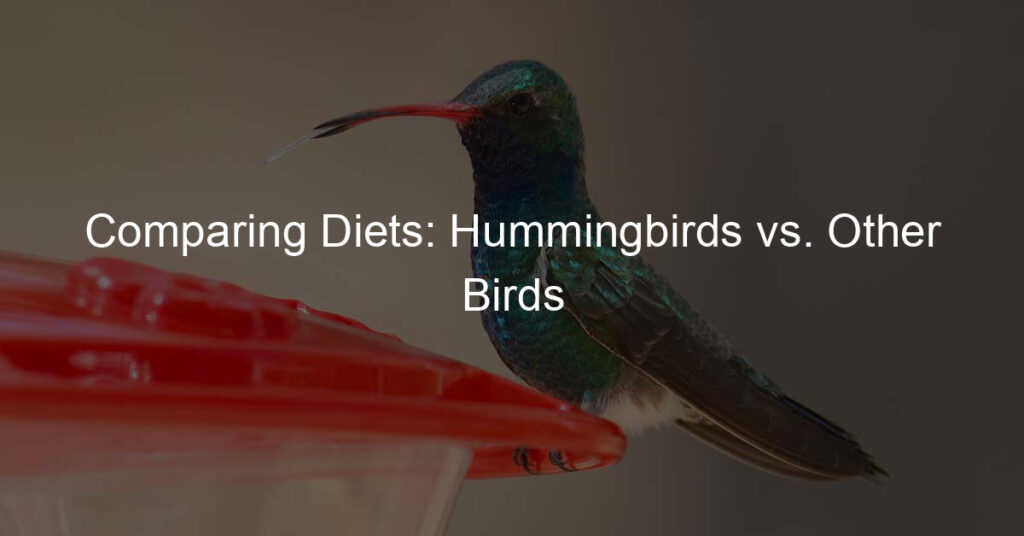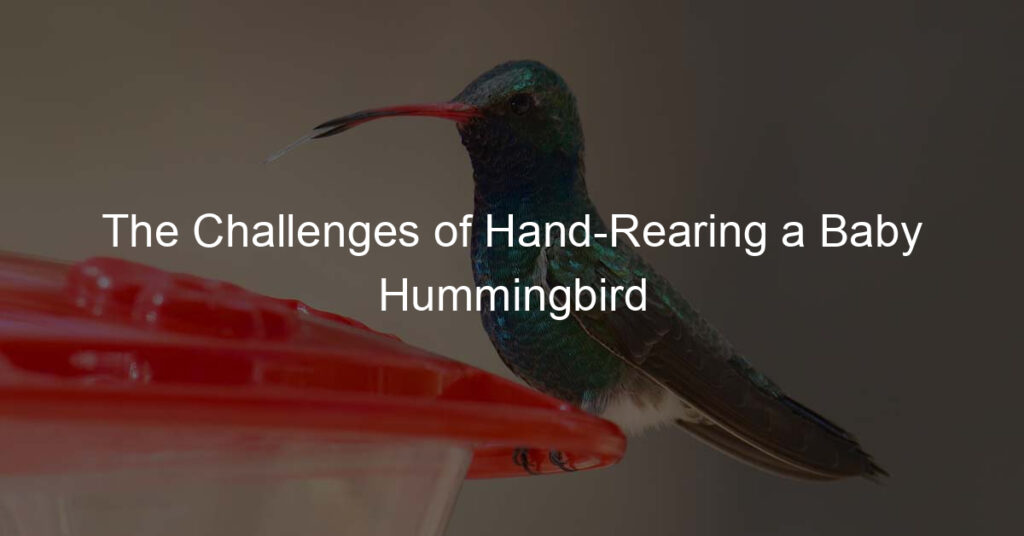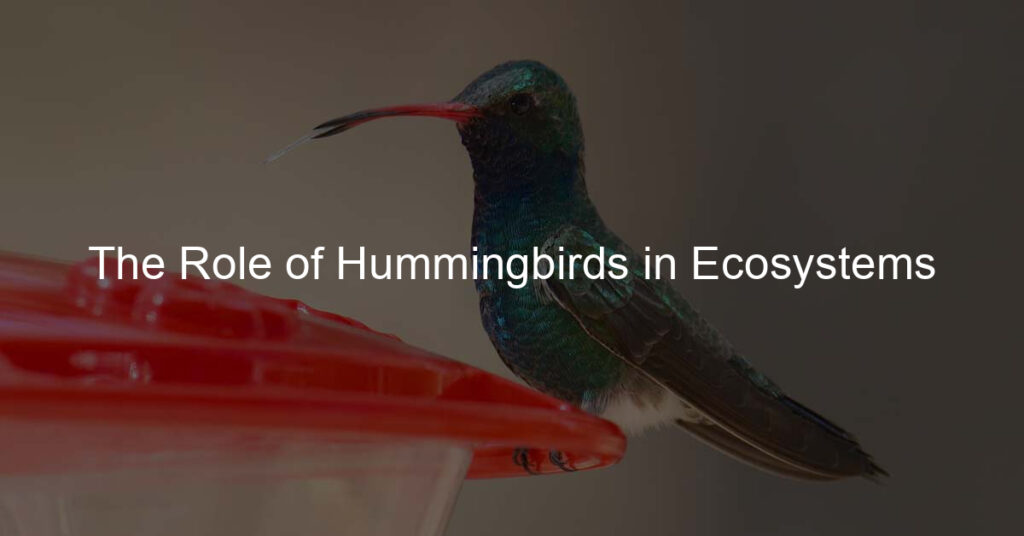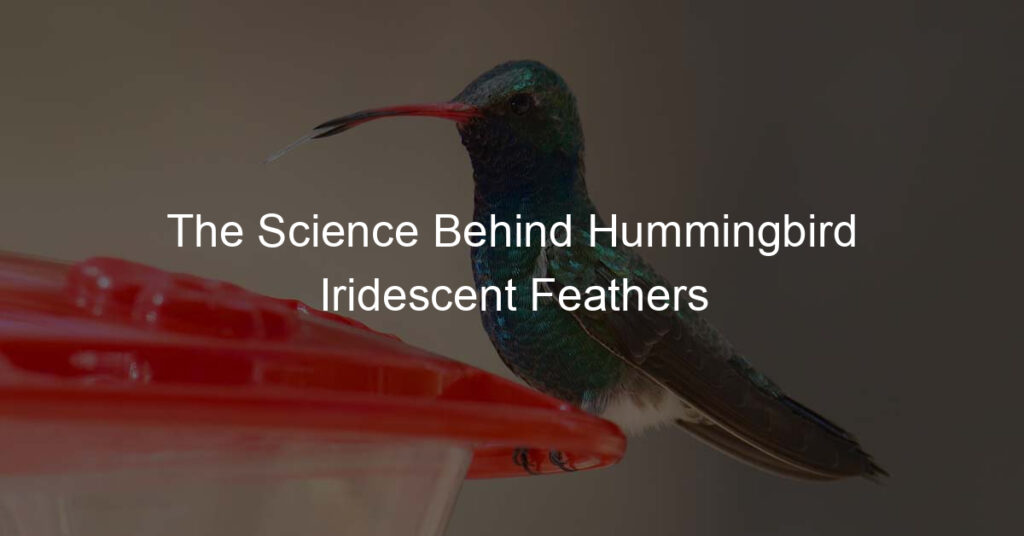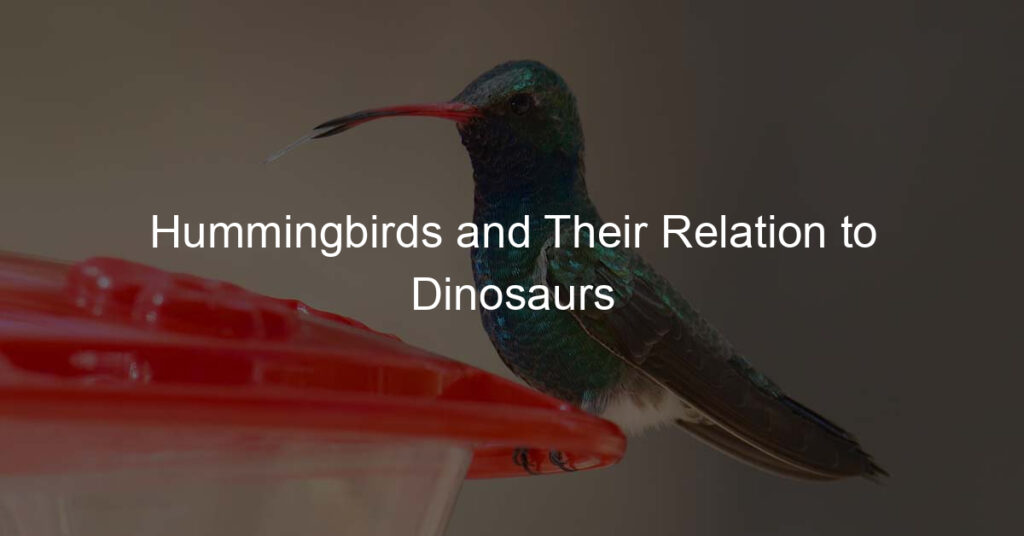If you are a hummingbird enthusiast, then you know the importance of keeping a fresh nectar supply for your favorite little birds. Hummingbirds need to eat frequently, and they love nothing more than a sweet snack! But how long does hummingbird nectar last? And how can you keep it from spoiling? In this blog post, we will answer all of your questions about hummingbird nectar!
Introduction To Hummingbirds
Hummingbirds are some of the most amazing creatures on Earth, known for their incredible level of agility and unmistakable buzzing wings. Of all the birds, they’re among the smallest weighing only 0.04 ounces on average! Despite their small stature, they make up for it with a fiercely independent spirit and powerful wings that can beat as many as 80 times per second in a single burst of energy!
Read more: How To Hand Feed Hummingbirds
As migratory species, hummingbirds fly thousands of miles every year in an inspiring journey across different countries and climates. What sets them apart from other birds is their unique ability to hover mid-air by flapping their wings in an almost figure-8 pattern. These intrepid little creatures also feed on nectar from flowers, making them vital pollinators for plants surrounding our homes. All these incredible traits come together to create something truly remarkable – a hummingbird!
What Is Hummingbird Nectar?
Hummingbird nectar is a sweet homemade treat beloved by hummingbirds around the world. The nectar is made from boiling water and sugar, with no artificial sweeteners or preservatives added. This gourmet recipe helps attract unparalleled numbers of hummingbirds to your garden.
Hummingbird nectar should be made using no more than four parts water for every part of sugar so that it can mimic the natural sweetness of flowers in nature.
Read more: How Do Hummingbirds Feed Their Babies?
Since hummingbirds are very small birds, they need a significant amount of energy throughout the day to survive. They eat natural nectar. However, many bird enthusiasts turn to provide them with an infinite food source: a dedicated hummingbird feeder stocked with homemade fresh nectar. It’s one way to attract hummingbirds who bring brightness and life wherever they flit!
How Long Does Hummingbird Nectar Last?
This is a common question posed by hummingbird enthusiasts and with the robustness of hummingbird varieties, it’s a fair question. Fortunately, the answer is not complicated.
Properly Stored Nectar Can Last For About A Week
If stored properly, either in a refrigerator or somewhere dark and dry with an airtight container, un-diluted raw nectar can safely last for about a week before needing to be replenished—making it easy for birders to keep their feeder fresh for these feathered friends.
Read more: How Often Do Hummingbirds Eat?
Mixed Nectar Added To A Feeder Will Last 3-5 Days
However, once the hummingbird food is mixed and added to hummingbird feeders, it should be replaced every 3-5 days, or else it can spoil. This is because the sugary mixture attracts bacteria and mold which contaminate the nectar and make it dangerous for hummingbirds to consume. Therefore, when it comes to filling up your feeder, check the nectar regularly and discard any spoiled hummingbird nectar. After discarding spoiled nectar, add fresh nectar.
Of course, if you’re dealing with bigger issues such as raccoons which love the sugar and can often empty out entire feeders overnight, then replace each night as needed to keep all your visitors content!
Read more: How To Catch A Hummingbird
Preparing & Storing Hummingbird Nectar:
Storing and preparing hummingbird nectar can be a fun and rewarding hobby. Not only is it entertaining to watch the hummingbirds congregate around your feeders, but you also have the added benefit of being able to keep an eye on their health. It’s important to make sure that hummingbirds have access to fresh, clean nectar at all times.
Preparing The Nectar
When preparing nectar, always use freshly boiled water that has cooled completely. Mix in sugar at a ratio of four parts water to one part sugar.
For best results, do not use honey or artificial sweeteners as this can be detrimental to a hummingbird’s health.
Making homemade nectar is easy and allows you to provide your local hummingbirds with fresh food whenever they need it!
Storing The Nectar
To store nectar, it should always be in the refrigerator when not in use; if kept at room temperature it will spoil quickly due to the sugar content.
Do Hummingbirds Migrate For Food During Certain Times Of The Year?
At certain times of the year, they fly to other places in order to find food (natural flower nectar) and resources that wouldn’t be available in their regular habitats. But why do hummingbirds migrate? Well, like all birds, they migrate because the days become shorter as fall turns into winter. This signals that food supplies are beginning to diminish and necessitates a journey to a warmer climate where there is more food available.
Read more: How To Make A Hummingbird House
Hummingbird migration usually takes place between late August and late October, as they fly thousands of miles southward to sunny destinations such as Mexico and Central America where resources are plentiful! It’s incredible to think how far such tiny little creatures can fly each year – some species can travel up to 3,000 miles when it’s time for them to make the trek southwards!
So if you’re ever lucky enough to spot a hummingbird ambling about your backyard during the autumn or early winter season, chances are good that your feathered friend isn’t from around these parts but rather has come from much farther away!
Final Word:
Hummingbird nectar can last for about a week when stored properly either in the refrigerator or somewhere dark and dry in an airtight container. Mixed nectar should be replaced every 3-5 days to prevent spoilage due to bacteria and mold.
You can prepare hummingbird nectar yourself at home using freshly boiled and cooled water with a 1:4 ratio of sugar to water. When hummingbirds have access to fresh, clean nectar, they can often stick around for the winter months before their migration south begins.
No matter what time of year it is, providing suitable food sources for hummingbirds is essential in order to ensure their health and well-being. With a little bit of patience and dedication, you can create the perfect hummingbird haven for your backyard visitors!
